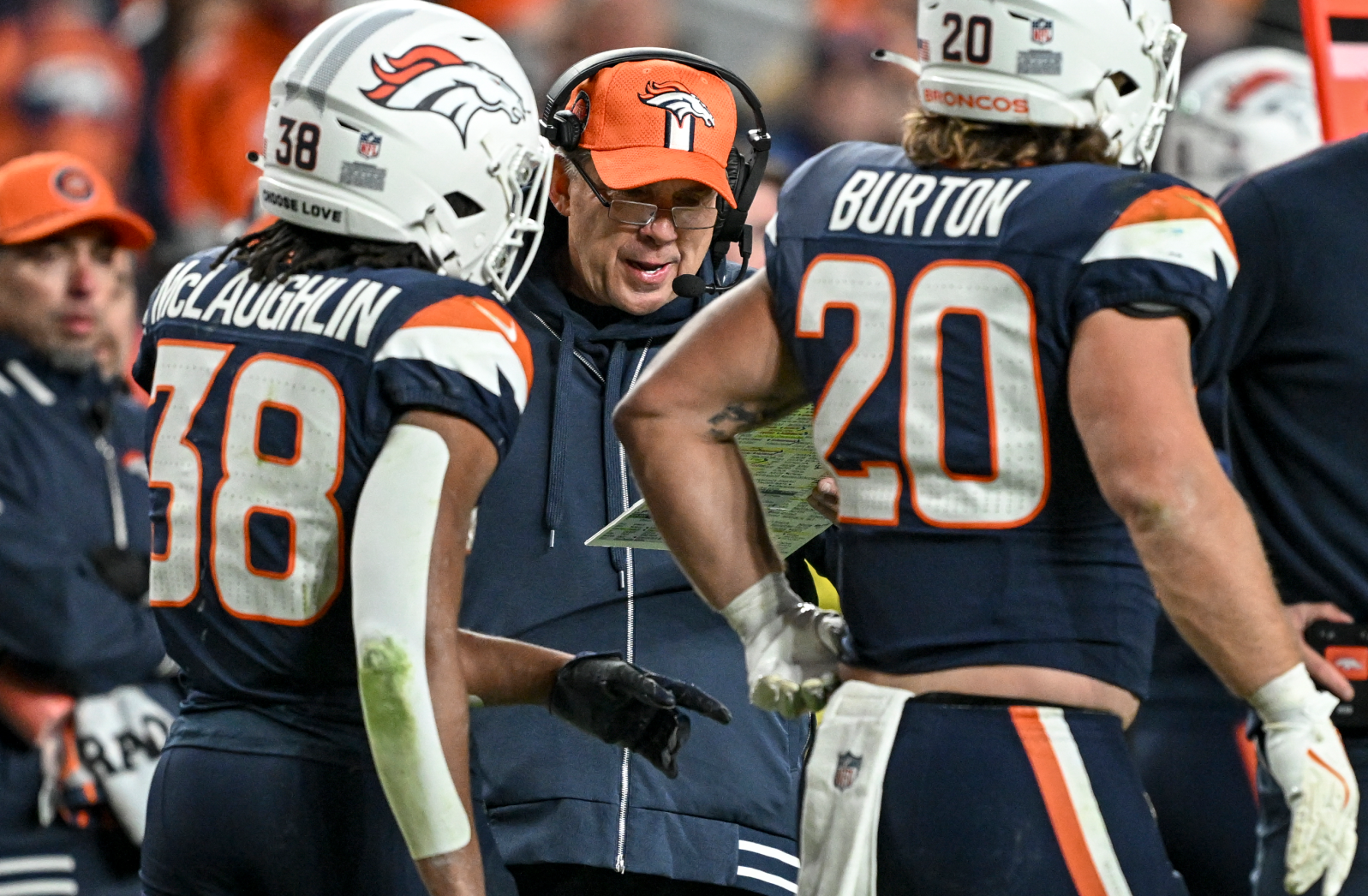
Keeler: Broncos’ Sean Payton Is His Own Worst Enemy. Want to Beat Joe Burrow, Bengals? Stop Ignoring Your Play Sheet.
In the modern landscape of the NFL, where strategy and adaptability often determine the difference between victory and defeat, no one is immune to criticism. Especially when those on the sidelines make decisions that seem to undermine the strengths of their teams. Sean Payton, the head coach of the Denver Broncos, is no stranger to scrutiny, and as the Broncos prepare for their crucial match-up against Joe Burrow and the Cincinnati Bengals, one cannot help but wonder: Is Sean Payton his own worst enemy?
The Broncos, under Payton’s leadership, have had their share of challenges. Coming off a tumultuous season and rebuilding from a series of underwhelming performances, expectations were high for the veteran coach to lead Denver back into playoff contention. However, despite his long track record of success with the New Orleans Saints, including a Super Bowl victory and numerous playoff appearances, Payton has faced increasing criticism over his inability to fully unlock the potential of the Broncos’ offense, particularly in high-stakes games against quality teams like the Bengals.
This brings us to a simple yet complex question: What is holding the Broncos back from overcoming opponents like Cincinnati, and why does it seem as though Payton, the very man tasked with leading the team, is often a stumbling block in his own right? It all boils down to one thing: Sean Payton’s tendency to ignore his own play sheet, abandoning his offense’s strengths and creating a game plan that undermines the team’s chances.
The Burden of Expectations and a Frustrating Start
When Payton was hired by the Broncos in 2023, the hope was that he could immediately breathe life into a stagnant offense that had struggled for years. Quarterback Russell Wilson, coming off a disastrous season in 2022, was seen as a prime candidate for a revival under the right system. Payton, renowned for his offensive creativity and success with Drew Brees in New Orleans, was expected to be the answer to Denver’s offensive woes.
However, despite flashes of brilliance, the Broncos’ offense has often fallen short of expectations. Payton’s system, while complex and innovative, has struggled to translate into consistent production on the field. Whether it’s miscommunication, poor execution, or puzzling game plans, the Broncos have found themselves unable to move the ball efficiently, particularly in key moments.
Against elite teams like the Bengals, this becomes a much bigger issue. Joe Burrow, one of the league’s most talented quarterbacks, can exploit even the smallest weaknesses. The Bengals’ offense, led by Burrow, thrives on quick decision-making, precision passing, and an ability to adjust on the fly. If Payton and the Broncos’ offense are not clicking, they will inevitably fall short against a well-coached, explosive team like Cincinnati.
The Problem with Payton’s Play Calling
At the heart of the Broncos’ struggles is Payton’s own approach to play calling. While he has a wealth of experience, his decisions at times have been perplexing. The Broncos’ offense, which boasts a talented receiving corps and an underrated running game, has often failed to get into a rhythm. And as the season progresses, it has become increasingly apparent that Payton’s reluctance to stick to the fundamentals of his playbook is a primary factor in this inconsistency.
Payton, known for his creative and up-tempo offense in New Orleans, has at times seemed too committed to establishing a “new identity” for Denver, rather than sticking to what he knows works. In a game against a team like the Bengals, where Joe Burrow can command the game with his elite passing attack, the Broncos cannot afford to abandon their core offensive strengths.
Wilson, when given the opportunity to push the ball downfield and engage in rhythm-based play calling, has shown flashes of his former self. However, Payton has, on more than one occasion, opted for conservative play calls that lack creativity or fail to maximize Wilson’s strengths. A high percentage of the Broncos’ offensive plays have been predictable, limiting Wilson’s ability to break out and find the deep shots that made him successful in Seattle. Payton’s obsession with establishing the run game or forcing a methodical, slower-paced offense has often placed unnecessary pressure on the defense, making the Broncos more vulnerable to high-powered offenses like Cincinnati’s.
Avoiding the Fundamentals: The Price of Experimentation
What’s most baffling about Payton’s approach to the Broncos’ offense is his tendency to overcomplicate things. Instead of letting his play sheet be a guide, he’s often seen tinkering and experimenting, abandoning foundational principles that could help the offense find its groove. Against teams like the Bengals, this experimentation could prove costly.
When the Broncos face high-level quarterbacks such as Burrow, they need to have a consistent offensive strategy. A strategy built around balance: a solid mix of run and pass plays that keeps the defense on its heels, combined with a reliance on Wilson’s ability to read defenses and take advantage of mismatches. However, Payton’s deviation from this balanced approach has cost the Broncos on several occasions. Whether it’s calling unnecessary deep passes when a quick, intermediate route would suffice, or failing to establish a running game early on, Payton’s decision-making has often made the offense predictable and ineffective.
Against Burrow and the Bengals, such predictability can be disastrous. Burrow is too talented and his receiving corps too potent to allow the Broncos’ defense to do the heavy lifting for an entire game. Without an offense capable of putting points on the board consistently, the Broncos will quickly find themselves at a disadvantage, forced to rely on their defense to hold back a high-octane Bengals offense.
Relying on Wilson’s Strengths, Not Payton’s Ego
Russell Wilson’s acquisition was supposed to be a game-changer for the Broncos. His ability to extend plays, throw deep, and lead a dynamic offense was supposed to help elevate Denver to playoff contention. And yet, his chemistry with Payton has often felt strained. Payton, it seems, has been unwilling to fully embrace Wilson’s strengths, particularly his ability to make off-schedule throws and attack downfield. This has created a disconnect between the coach and quarterback, stifling the team’s ability to make plays when it matters most.
In games like the one against Cincinnati, Payton must put Wilson in a position to succeed. That means recognizing his quarterback’s strengths: taking shots downfield, using Wilson’s mobility to create open lanes, and letting him make quick, decisive decisions in the pocket. But Payton, in many instances, has insisted on limiting Wilson’s freedom, opting for a more traditional and conservative offense that has failed to create the necessary explosive plays.
In fact, one of the main criticisms of Payton’s time in Denver has been his unwillingness to adapt his system to his personnel. Payton’s system, while successful with Drew Brees in New Orleans, does not always mesh with the talents of Wilson. For the Broncos to beat Burrow and the Bengals, Payton must adjust his offensive philosophy to capitalize on what Wilson does best: improvisation and deep passing. Anything less will continue to stifle the offense, and Denver will be forced to play catch-up against a high-flying Bengals team.
Defense, Special Teams, and the Need for Balance
In addition to adjusting his offensive play calling, Payton must also consider the balance between the offense, defense, and special teams. One of the Broncos’ strengths has been their defensive unit, led by an impressive pass rush and solid secondary play. Against the Bengals, Denver’s defense will need to step up and apply pressure to Burrow. But the defense can only do so much if the offense is not consistently moving the ball and putting points on the board. Special teams, too, will need to play a critical role in field position and generating positive momentum.
For the Broncos to stand a chance against the Bengals, Payton needs to stop overcomplicating matters on offense. A balanced game plan that includes a mix of runs, passes, and quick strikes will allow the defense to stay rested and prepared for the challenge of slowing down Burrow. The key is not to abandon the play sheet for the sake of experimentation but to trust it and adjust as needed during the game.
The Road Ahead for Payton and the Broncos
Sean Payton has the opportunity to change the narrative surrounding his tenure with the Denver Broncos. By sticking to his play sheet, embracing a balanced approach, and trusting his quarterback, he can lead Denver to success, even against formidable opponents like the Bengals. However, this will require a commitment to consistency, creativity, and a willingness to adapt—not just for the sake of winning but to maximize the potential of his team.
For the Broncos to beat Joe Burrow and the Bengals, they need more than just solid defense or a few good plays here and there. They need an offense that can keep pace, move the ball efficiently, and score consistently. Sean Payton has the tools to make this happen, but it’s time for him to stop being his own worst enemy. The Broncos cannot afford to ignore the play sheet any longer.


